The Alloush family would have been getting ready for breakfast on Sunday morning when an Israeli strike hit their home in northern Gaza, according to a distraught relative.
The blast blew dozens of Palestinians into pieces, Abdullah al-Najjar said from the scene of the attack in Jabalia.
Many children were among them, according to rescuers.
At around six o'clock, "there was a very huge explosion... When we arrived here, all the bodies were torn apart," Najjar said.
"This is the loaf of bread that they wanted to eat for breakfast. What's the benefit of a loaf of bread if there is no safety and peace?" he asked, holding up pieces of pita.
Many others had also been in the Alloush family home, which was being used as "a shelter for people during intensified bombing", Najjar told AFP.
"But they all died."
The civil defence agency in the Gaza Strip said "at least 25" people -- 13 children among them -- were killed in the house, and more than 30 were injured.
It said another strike, on Gaza City's Sabra district, killed five people, and "a number of civilians are still under the rubble".
At the Jabalia house, people searched through the debris, finding personal items including a child's stuffed animal.
Five people carried a white-bearded elderly man on a wheelchair across the rubble beside the remains of the house.
AFP footage showed Palestinians unloading bodies in bloodstained white shrouds from a van at a Jabalia cemetery, before praying and burying them.
Since October 6, Israel's military has engaged in a withering air and ground assault on parts of northern Gaza including Jabalia, saying their aim is to stop Hamas from regrouping.
But Najjar, a relative of many of the victims, denied they belonged "to any organisation" and said they were innocent.
Neighbour Mohammed al-Barsh charged that "children, women and innocents" are "targets for the Israeli enemy".
A Hamas statement condemned what it called the Jabalia "massacre", saying the Alloush family home "was crowded with over 50 innocent civilians".
It said most were women and children, including people "who had been forcibly displaced by the occupation (Israel) from the Jabalia refugee camp".
The UN Human Rights Office (OHCHR) on Friday condemned the number of civilians killed in the war, saying women and children comprised nearly 70 percent of the thousands of fatalities it had been able to verify.
"Civilians in Gaza have borne the brunt of the attacks, including through the initial 'complete siege' of Gaza by Israeli forces," the OHCHR said.
"Conduct by Israeli forces has caused unprecedented levels of killings, death, injury, starvation, illness and disease."
The heads of UN agencies early this month described northern Gaza as "under siege" and denied "basic aid and life-saving supplies".
Israel's main military backer the United States on October 15 warned it could withhold some of its billions of dollars in military assistance unless Israel improves aid delivery to Gaza within 30 days.
With that deadline fast approaching, there has been little sign of improvement.
A UN-backed assessment on Saturday warned that famine is imminent in northern Gaza.
Fewer aid shipments are allowed in than at any time since October 2023, according to the Integrated Food Security Phase Classification (IPC) report.
An alert Saturday from the Famine Review Committee warned of "an imminent and substantial likelihood of famine occurring, due to the rapidly deteriorating situation in the Gaza Strip".
Israel's military questioned the report's credibility.
"To date, all assessments by the IPC have proven incorrect and inconsistent with the situation on the ground," a statement said, denouncing "partial, biased data and superficial sources with vested interests".
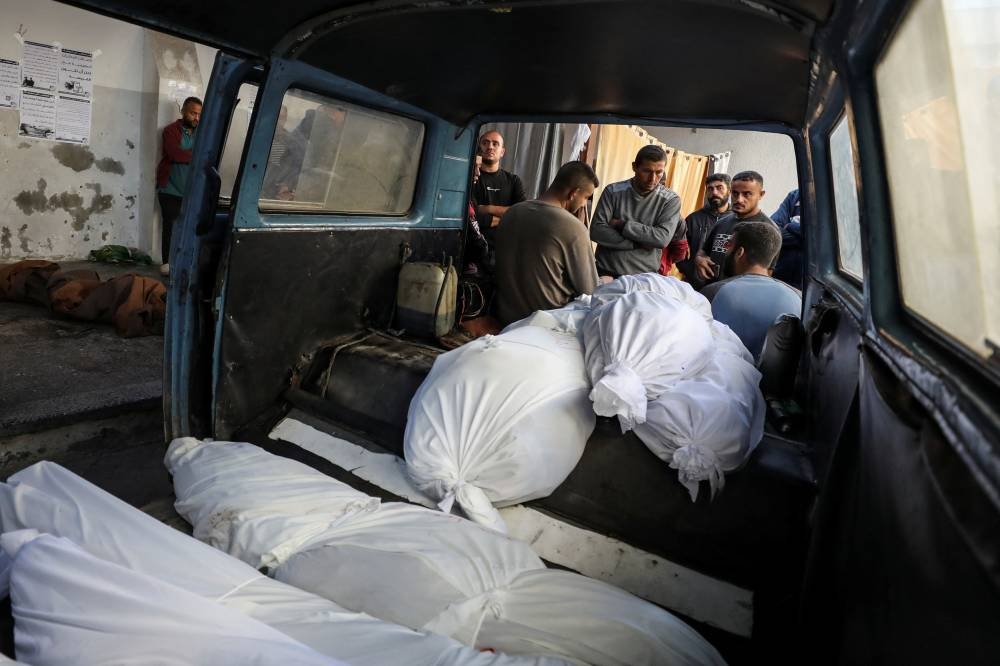
The bodies of Palestinians, killed in an Israeli strike on a house in Jabalia, are placed in a vehicle, at Al-Ahli hopsital in Gaza City, on Sunday. REUTERS
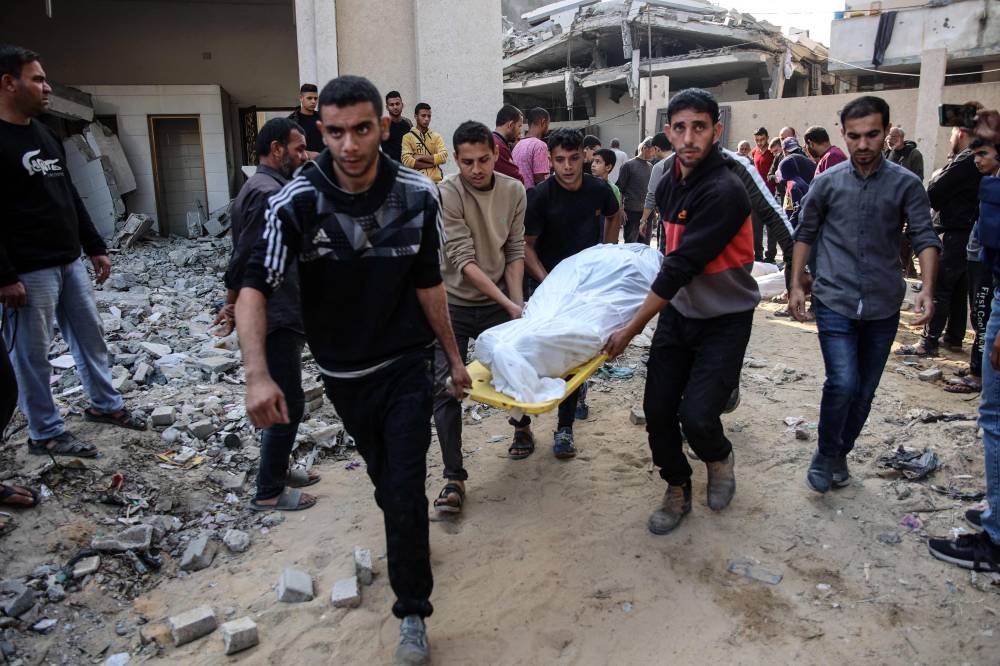
Palestinians carry the body of a victim killed in Israeli strikes toward a cemetery in Jabalia in the northern Gaza Strip, on Sunday. AFP
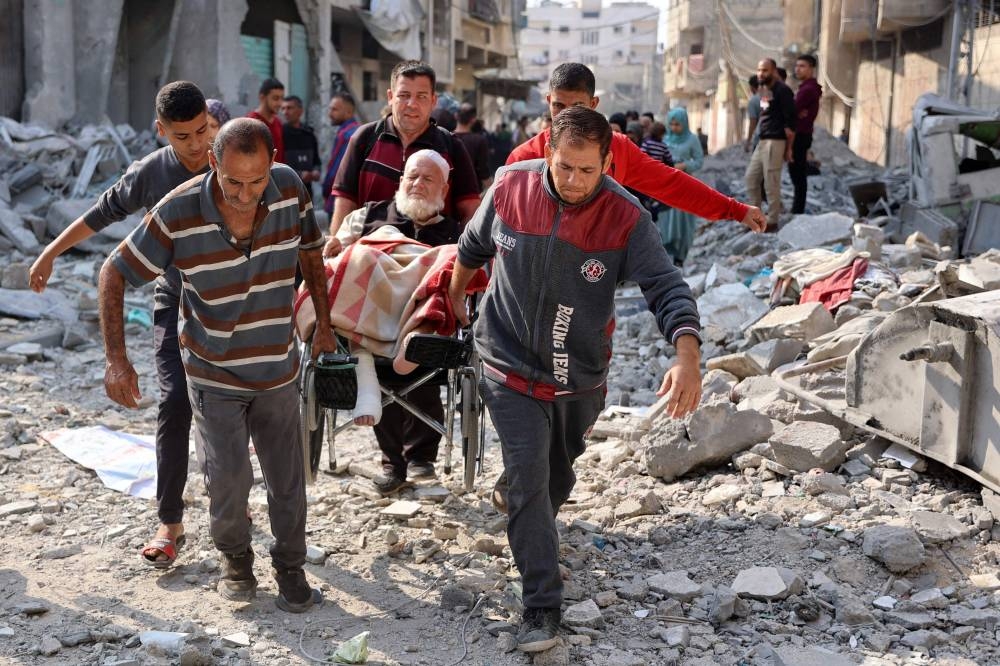
Palestinians carry an elderly man on a wheelchair through the rubble following an Israeli strike in Jabalia in the northern Gaza Strip, on Sunday. AFP
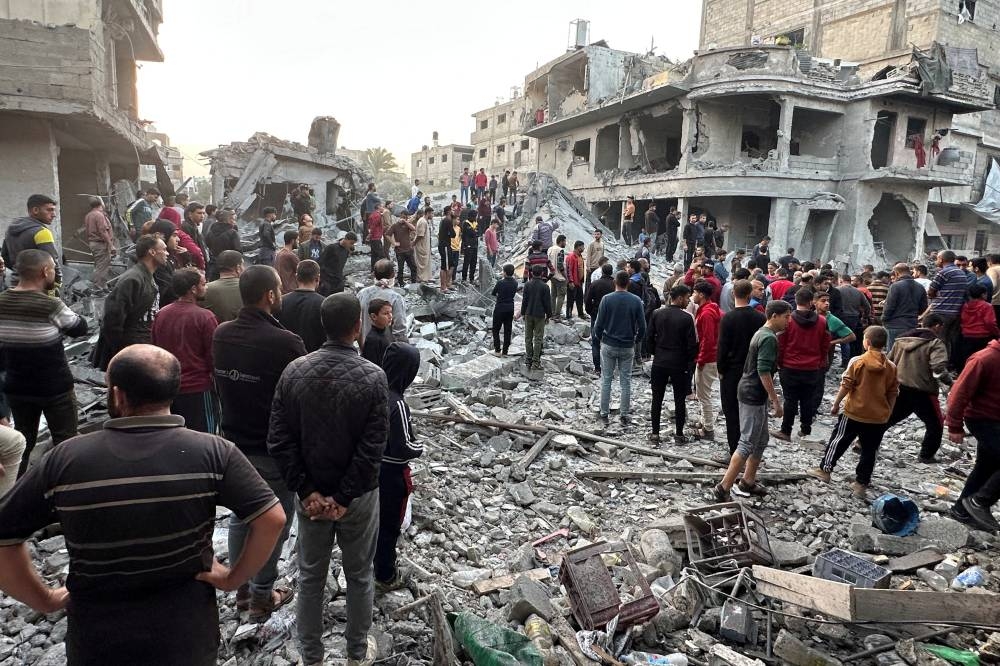
Palestinians gather at the site of an Israeli strike on a house, in Jabalia in the northern Gaza Strip, on Sunday. REUTERS
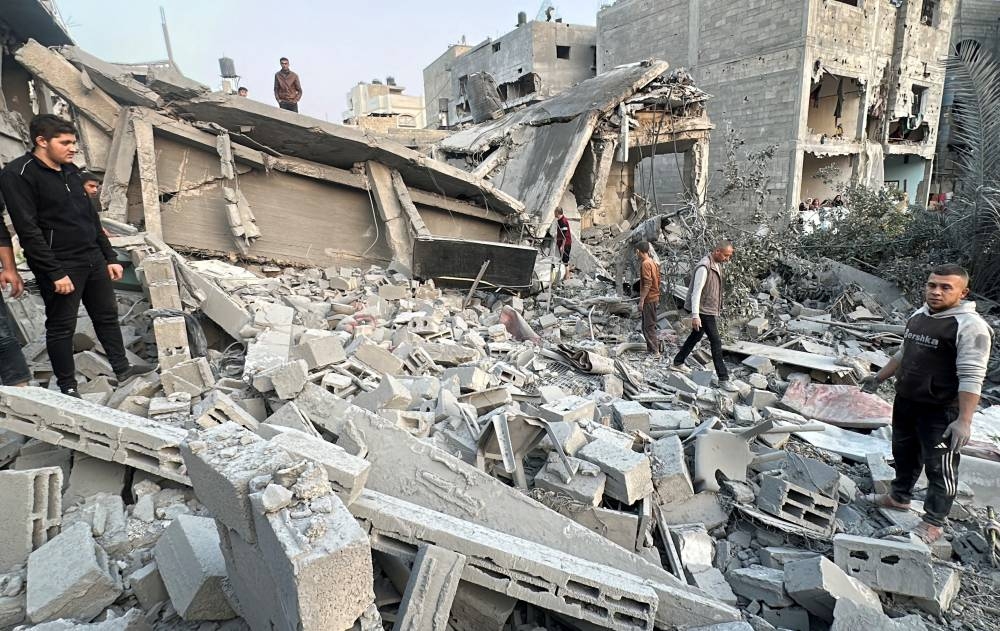
Palestinians gather at the site of an Israeli strike on a house, in Jabalia in the northern Gaza Strip, on Sunday. REUTERS
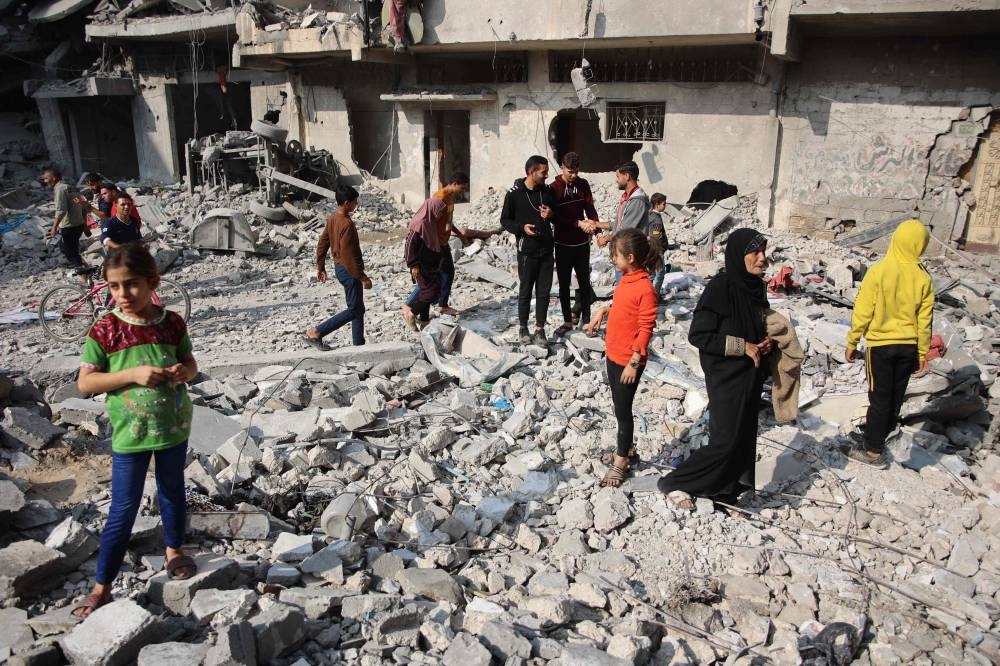
Palestinians walk amid the destruction following an Israeli strike in Jabalia in the northern Gaza Strip, on Sunday. AFP
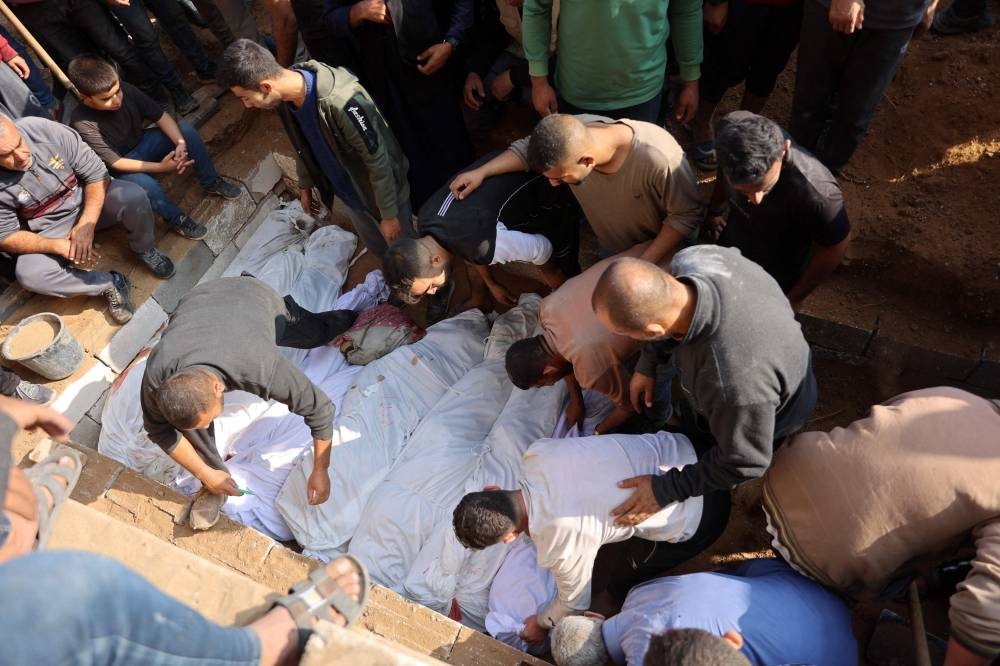
Palestinians bury the bodies of victims killed in Israeli strikes at a cemetery in Jabalia in the northern Gaza Strip, on Sunday. AFP
